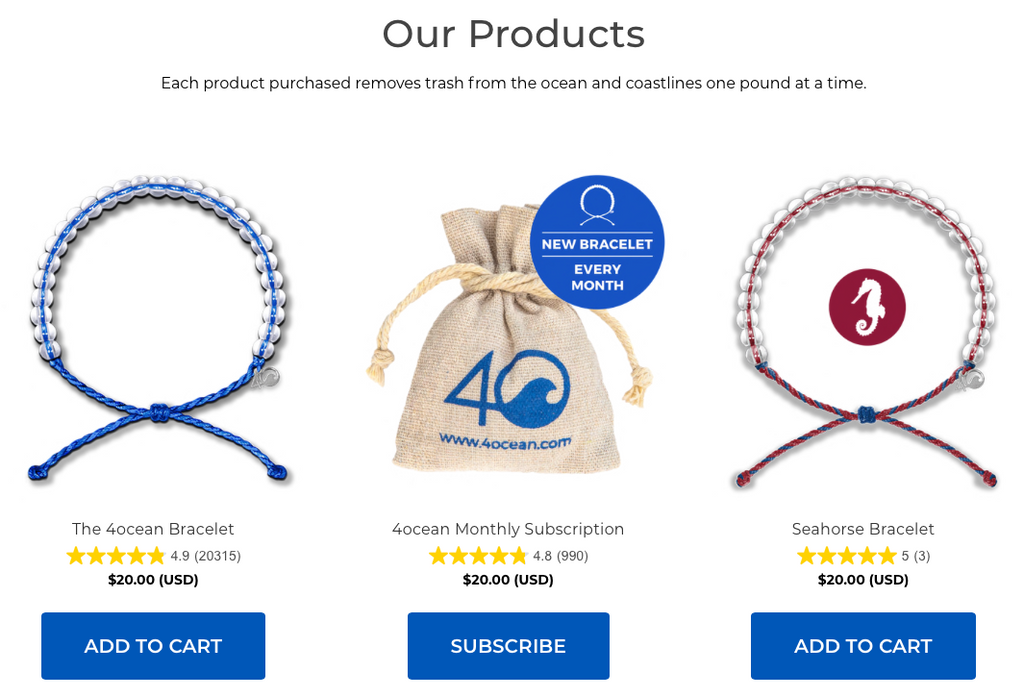When you sit down for lunch or dinner and fish is on the menu, what's the first thing that comes to mind?
"Hmm...will I have it sauteed, blackened or fried? With lemon and butter? Possibly add it to the Caesar salad? Maybe the fish sandwich? Or, wow, that tuna salad looks great."
But the foodie in you is in for a big surprise! The fish we are eating and the salt we are using to season our food are becoming contaminated with plastic and the toxins these plastics absorb from the environment. That's right, the plastic used in shampoo bottles, that first toothbrush you had when you were a kid, the microplastics from synthetic fibers in clothing, and of course single-use plastic like bags, straws, and cutlery may be finding their way right back onto your plate. Makes you want to say, "I am eating WHAT!!!???
Fish with a side of plastic, please.
Right now, science lacks the evidence to determine whether microplastics (5 millimeters to 100 nanometers in size) are affecting fish on a population size level so we can't say for sure if our food supply is in danger. But what we can say is that microplastics are ever-present in many fish species and this has the experts worried.
A myriad of studies have found microplastics in more than 100 aquatic species, in fresh and saltwater, both wild caught and farmed. Of those, more than 50% could end up on your dinner plate. Popular seafood species like cod, mackerel, sardines, mussels, and shrimp have all been found to contain some form of these microplastics in their system. Though the science might not be definitive enough to say whether microplastics in fish are affecting human health, just the thought of it leaves one feeling sick.

What is most disturbing is the thought that as you go up the food chain, toxins absorbed by the plastic tend to bioaccumulate in fish tissues. The food web starts with the smallest of creatures like zooplankton who ingest the tiny microplastics thinking they are forms of phytoplankton. This zooplankton is then eaten by fish like sardines and anchovies. Next in line are the fish we eat, like mackerel, cod, flounder, or snapper. Even further up are the swordfish, tunas, mahi-mahi, and sharks. While not on the menu, apex marine mammals like seals, dolphins, orcas, and whales are extremely susceptible to these higher levels of toxins in their prey as well.
Sea Salt or Sea Plastic?
Sea salt is made by evaporating ocean water and generally has very little processing. While it contains many beneficial minerals, it also contains microplastics. A recent study analyzed 39 salt brands (including sea salts) from 21 countries including ones available in the US, China, and Europe. Of those 39 brands, 36 were found to contain microplastics! It turns out that brands from Asia contained the highest quantities of microplastics. This is not surprising as Asia, particularly Indonesia, is a hot spot for plastic pollution. It just goes to show that ocean plastic anywhere can become a problem everywhere.

Check out this infographic on how these plastics get into the entire food web....

As the old saying goes, out of sight out of mind, but is it really? Just remember that what goes in the ocean may be going back into you. By reducing our consumption of single-use plastic and properly recycling the plastic we can't avoid, we can keep plastic out the ocean and off our dinner plates. Make a commitment to yourself that you will be mindful of your everyday actions and in the end, you will be thankful you did (and your stomach will thank you, too).
If the thought of microplastic in your food has your mind spinning, leave a comment below and let us know your thoughts. Also, get in on the conversation over at the Discover 4ocean Facebook Group and make sure to follow us on Facebook, Instagram, and Twitter to stay up to date on all things 4ocean!


